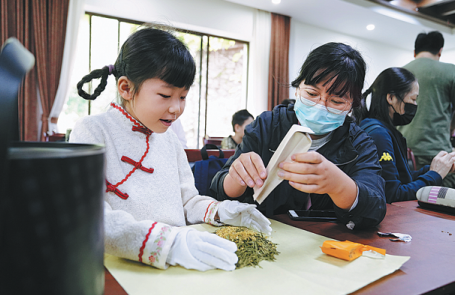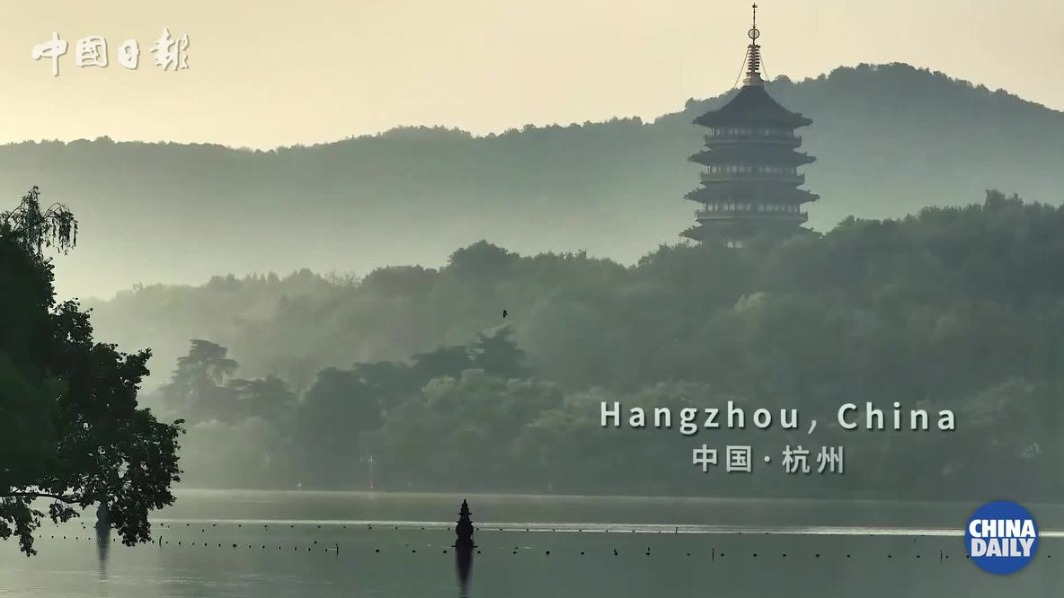redefining the humble leaf

tourists enjoy a do-it-yourself tea-making experience at the china national tea museum in hangzhou. china daily
most of the economically underdeveloped and impoverished areas in china are hidden in the depths of the mountains. some of these areas are not suitable for growing grains, but are great for cultivating tea leaves.
at the southern tip of gansu province, wenxian county's moderately acidic soil and misty rainy climate are ideal for tea cultivation.
the vast range of territory in china has also nurtured rich varieties of tea, each carrying a distinct local flavor. experts say a great number of tea production areas have fostered profound tea culture over the years, which paved the way for the incorporation of leisure and tourism experiences into the tea industry.
to date, the provinces of gansu, hubei, hunan, sichuan, guizhou and yunnan have all explored the successful path of tea production and its related tourism development.
in jianzhong town of guizhou, tea trees have become a spectacular sight.
at a tea plantation 1,300 meters above sea level, bursts of laughter can be heard from time to time amid lush tea trees in early april.
they were from the local tea workers.
"i'm now picking my third basket of tea today," says villager lan jinqin.
lan is happy that she does not have to leave her hometown to work and can make a living near home.
her income from tea picking can cover her family's daily expenses.
the plantation where lan works covers an area of more than 12,600 mu (840 hectares) and is home to a variety of tea. it is one of nine major tea plantations in jianzhong. the tea industry has provided job opportunities to 10,000 locals in the neighboring area.
"we are committed to making tea a medium in the creation of a beautiful rural themed pastoral complex," says huang hongying, who is in charge of running the tea plantation.
since the town began building a provincial white tea park in 2014, tea has played a predominant role in uplifting jianzhong's economy. jianzhong then initiated the development of its tea tourism in 2016.
the integration of tourism elements has injected vitality into the local tea industry and increased villagers' incomes.
"we take advantage of the mountains, ecology and rural leisure tourism ... to provide a way for locals to increase their incomes and become rich," says liu feng, party secretary of jianzhong.
liu says the goal is to transform the town into a tea tourism destination featuring green development.
the town covers an area of 232 square kilometers and is 1,350 meters above sea level.
"the high mountain landscape, mild temperature and plentiful rainfall are very suitable for tea growth," says liu, adding that jianzhong has a long history of tea cultivation.
the close proximity to downtown guiyang, highway networks and local tea industry have helped pack the town with tourists from neighboring areas.
tourists can now experience fruit and tea leaf picking, fishing, hiking, and living at rural homestays in jianzhong.
many other places have escaped poverty through development of their tea industries.
-
'nice' to meet you, hangzhou
may 6, 2024

